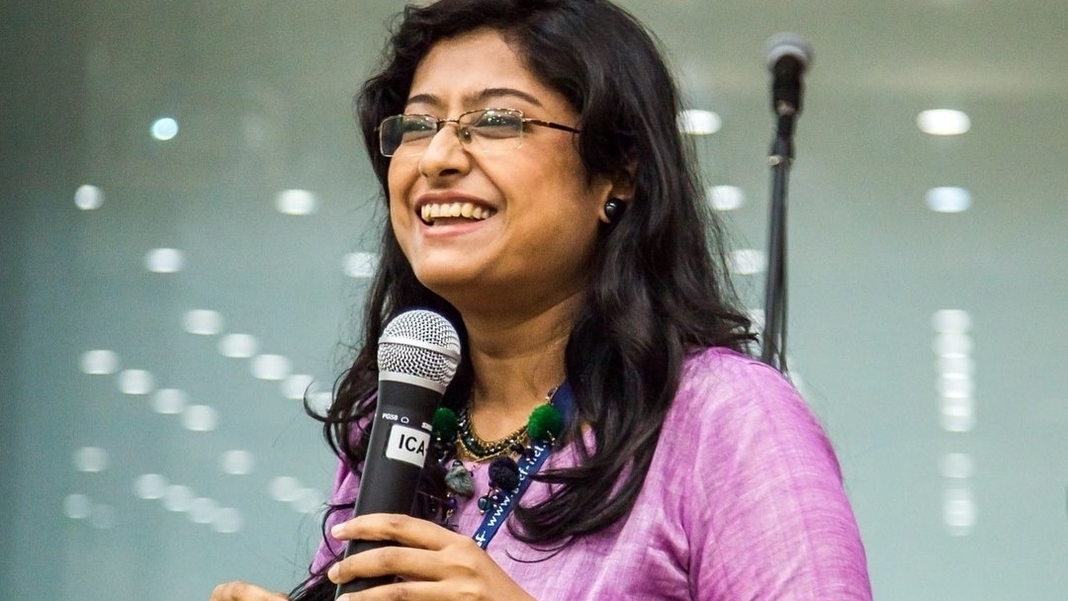Inclusion of woman in disaster management makes it gender responsive, says activist
Guwahati, June 3: Mayuri Bhattacharjee, a young woman from Assam’s Sonitpur district has become the hero of lakhs of women living in flood hit areas of the state. Bhattacharjee is the main force that has pushed the Assam government to include sanitary napkins as an essential item in the flood relief kit.
“Two years back when I visited many flood relief camps in the Sonitpur and Udalguri district of Assam, I asked women flood victims on how they manage those days of the month to stay clean. First, they were not very keen to speak on it, but as I approached more and more, they opened up about the problems they face during the menstrual cycle during a flood and it came out that they have no access to menstrual hygiene,” she said.
Every year, at least five million people get hit by flood in Assam. The Assam government sets up thousands of relief camps across affected districts to shelter thousands of flood victims, half of whom are women. These camps do not have a disposal system of menstrual waste and women are not provided with menstrual hygiene kits like sanitary pads since it was not listed in the essential items in flood relief kits. Until last year these camps did not have gender segregated toilets as well. Depending on the flood situation a woman has to stay in relief camps for two to five months in flood hit areas.
But thanks to Mayuri Bhattacharjee, the 34 year old public health and human rights activist, women living in disaster relief camps will now have access to sanitary pads. Responding to a digital campaign #DignityInFloods, launched by the activist on the online platform Change.org, the Assam State Disaster Management Authority has instructed the district and sub-divisional authorities to include sanitary pad in the list of essential items during floods.
This move is considered as phenomenal and is welcomed by women in rural areas of Assam who have at least stayed in flood relief camps once in their lives.
“During floods we don’t get access to clean clothes. When you have to run out of your house to escape the rising water, taking clothes for menstrual cycle is the last thing that comes to your mind. But when you are living in a relief camp that also houses hundreds of other men and you get your periods, that’s when you realise how big is this problem of not having access to sanitary pads.”, said Dibyarani Rabha, a woman from Assam’s Goalpara district who had been living in flood relief camps almost every year.
The campaign, #DignityInFlood launched in March 2019, gained support of lakhs of women in India signing and pushing it in social media making the government take notice. Apart from including sanitary pads in flood relief kits, the petition also demanded special provision for gender segregated toilets, special provision for lactating mothers and pregnant women, visits by social welfare department officials to ensure safety of women and girls in flood shelters.
“More and more women should be inducted in disaster management so that it becomes more gender responsive” said Bhattacharjee.
“It is pleasing to see that a lot of women have been involved in tackling the Covid-19 situation. ASDMA also has many women employees. When you include a woman in a disaster management team she can make it more gender friendly as she would better the problems faced exclusively by a woman during a disaster”. She added.
Bhattacharjee said that seeing the success of her campaign, people from other flood hit states of India have also expressed interest in launching similar campaigns.
“I have got a call from Bihar asking me how to go about a similar campaign there since Bihar is also a flood hit state. “
Bhattacharjee has revealed that she would be closely working on the impact of climate change upon women in her next campaign.





